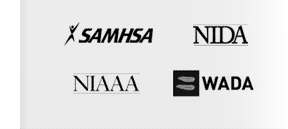Support Groups
If you’re trying to quit drinking, peer support groups are often an invaluable source of encouragement, guidance and assistance that can help you stay on track. Various support groups are available to help those who are addicted to alcohol including Alcoholics Anonymous, Dual Recovery Anonymous, Secular Organizations for Sobriety, SMART Recovery and Women for Sobriety. Each of these groups provides some fundamental benefits and can be useful in addition to treatment or other means of care for your alcohol addiction.
Alcoholics Anonymous Support Groups
These programs are widely available for alcoholics throughout the country as well as in more than 180 other countries worldwide. The Alcoholics Anonymous groups are part of a 12-step program that includes choosing a sponsor and working toward a predefined set of steps that aid in recovery, realization and self evaluation. Groups meet once or twice a week (sometimes more) and are free for members to attend.
Dual Recovery Anonymous Support Groups
Another 12-step support group, Dual Recovery Anonymous provides support from those who suffer from dual diagnosis. This is the instance of a substance abuse problem such as alcoholism paired with a co-occurring mental health condition such as depression, schizophrenia, anxiety or a similar condition. Dual Recovery Anonymous groups provide support for thousands of people who suffer from alcohol addiction and a co-occurring mental health disorder.
Secular Organizations for Sobriety (SOS)
This support group is an international organization that uses a science-based, self-empowerment approach to provide those who are addicted to alcohol with the support and guidance that they need to maintain abstinence and achieve recovery from alcohol addiction. The meetings are independent and provide an alternative recovery method that does not utilize the 12-step model but does encourage self-empowerment which is an effective approach for those who are uncomfortable with the spiritual guidance of AA.
SMART Recovery (Self Management And Recovery Training)
This program aims to help members achieve abstinence through self-empowerment and self-directed change. The SMART Recovery support includes an emphasis on self-reliance and self-directed change. Cognitive Behavioral therapy principles are employed to teach addicts how to manage thoughts, feelings and behaviors without using alcohol. Lifestyle balance is promoted throughout the program.
Women for Sobriety (WFS)
This support group is charged with offering treatment and guidance that is directly specific to the needs of alcoholic women. Because women tend to have a limited effectiveness in AA recovery, WFS provides women with a foundation that is based on the New Life Program which uses a series of 13 statements to aid in recovery. This program takes the unique needs of women into each step of the program offering guidance, support and care that includes positive reinforcement, encouragement, and improved health.
